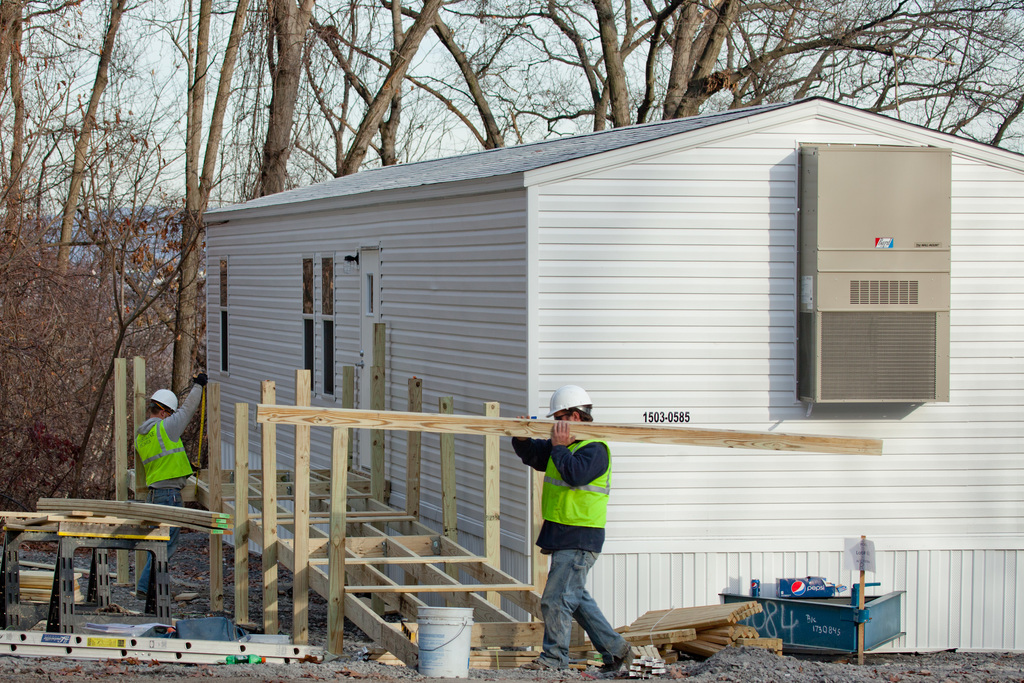You’ve joked about wanting to live forever—but have you actually run the numbers on that immortality flex? Living to 100 sounds iconic (hello, centenarian club!), but once you blow out that triple-digit candle, your wallet might be gasping for air. Most retirement plans are built for a gentle fade-out in your 80s, not an extra 20 years of brunch, blood pressure meds, and birthday parties.
The truth? Longevity comes with receipts. Literal ones. And if you’re not ready for the financial plot twists that come with a second retirement act, your golden years might feel more like a budgeting boot camp. From vanishing Social Security cushions to runaway healthcare costs and TikTok scams you don’t even understand yet, here are 13 brutal (but totally fixable) money truths about living to 100.
1. Your Retirement Savings Might Tap Out Before You Do

Let’s be real: most retirement plans are built for a 20- to 30-year sunset cruise, not a 35- to 40-year marathon. According to the Investopia, many Americans underestimate their life expectancy, which can lead to undersaving. The average life expectancy is 84 years for men and 87 for women, but if you live to 100, that’s an extra 13 to 16 years of expenses you need to cover. That’s a lot of time to keep the lights on and the fridge stocked.
This longevity gap means your nest egg needs to stretch further than anticipated. If you’re relying on the old 4% withdrawal rule, you might want to rethink that strategy. Financial experts suggest that extending retirement from 30 to 35 years increases the risk of depleting savings by 41%. So, unless you plan to become a centenarian influencer, it’s time to reassess your financial game plan. You might need to work a little longer or adjust your withdrawal rate to something closer to 3%. Retirees aiming for age 100 should consider more flexible drawdown strategies and maybe even part-time work. Because outliving your money is the kind of plot twist nobody wants.
2. Social Security May Not Be Your Safety Net

Social Security is often seen as a reliable source of income in retirement, but its future is uncertain. AARP projects that the trust fund will be depleted by 2035, after which it will only be able to pay about 75% of scheduled benefits. This shortfall could significantly impact those who live longer and rely heavily on these benefits.
Delaying benefits until age 70 can increase your monthly payout, but if the system undergoes changes, those benefits might not be as robust as expected. It’s crucial to have additional retirement savings and not solely depend on Social Security. Diversifying your income streams can provide a buffer against potential reductions in benefits. That means investing, maybe even working a few years longer, or having a solid pension (if you’re one of the lucky ones).
3. Inflation Will Eat Your Budget Like It’s at an All-You-Can-Eat Buffet

Inflation is the silent budget killer, especially over extended periods. Even a modest annual inflation rate can erode purchasing power significantly over 30 to 40 years. For retirees, this means that the cost of living could double or even triple during their retirement years, according to Society of Actuaries research.
To combat this, it’s essential to invest in assets that outpace inflation, such as stocks or real estate. Additionally, consider products like Treasury Inflation-Protected Securities (TIPS) that adjust with inflation. Regularly reviewing and adjusting your retirement plan can help ensure your savings maintain their value over time. If you plan to sip Mai Tais at 99, make sure they aren’t $27 each due to runaway prices. Inflation doesn’t just hit your latte habit—it can make essentials like housing, food, and medicine borderline unaffordable. Retirees living into triple digits face compounding inflation risks that few portfolios are designed to endure.
4. Healthcare Costs Will Skyrocket as You Age

Healthcare expenses tend to increase with age, and living to 100 means you’ll likely face significant medical costs. The average 65-year-old couple today will spend around $12,800 on healthcare in their first year of retirement, and costs only rise from there. Long-term care, prescription drugs, and other medical needs can quickly deplete savings.
It’s crucial to plan for these expenses by considering health savings accounts (HSAs), long-term care insurance, and other financial tools. Regular check-ups and a healthy lifestyle can also help mitigate some healthcare costs, but financial preparation is key to managing these inevitable expenses. Even seemingly minor issues like hearing aids or dental work can become major line items in your budget. And spoiler alert: Medicare doesn’t cover everything (hello, vision and dental). According to Fidelity, a 100-year-old retiree could easily spend over $400,000 on healthcare across their retirement. Better start saving—or hope for bionic body parts.
5. Long-Term Care Could Drain Your Resources

Long-term care is a significant expense that many overlook. Whether it’s in-home care, assisted living, or nursing home facilities, the costs can be staggering. In California, for instance, the median annual cost for a private room in a nursing home is over $100,000. As MyLifeSite puts it, long-term care is the single biggest threat to financial stability in old age, especially for centenarians who may need assistance for decades.
Medicare doesn’t cover most long-term care services, so it’s essential to plan ahead. Options include purchasing long-term care insurance or setting aside dedicated savings for these potential costs. Without proper planning, long-term care expenses can quickly erode your retirement savings, leaving you financially vulnerable in your later years. And if you think family will just take care of you, remember—they might be 70 themselves when you’re 100. Aging together sounds cute until everyone needs a walker.
6. You Might Outlive Your Insurance—And Then It Gets Spendy

Most term life insurance policies cut off at 80 or 85, so if you cruise past that, congrats—you’re uninsurable. Unless you locked in a whole life policy decades ago (and paid through the nose for it), you might be flying solo when it comes to covering funeral expenses or leaving anything behind. And let’s be honest, not having any kind of financial safety net for your family when you’re 100 feels like a missed opportunity.
By then, premiums for new policies are astronomical—if they’ll even issue you one. That means no help covering last rites, final medical bills, or any surprise expenses that hit in the bonus round of life. If your kids are in their 70s when you die, they probably have their own retirement problems and can’t bankroll yours too. You don’t need a Viking funeral, but you do want to leave something behind that isn’t just debt. Even a modest policy or burial fund can be a financial hug from beyond the grave. Because hitting triple digits is great, but doing it without a plan? Yikes. So yeah, even if you’re immortal on paper, your coverage probably isn’t. Time to check those policies and get creative with legacy planning.
7. Your Housing Needs Will Change—A Lot

That two-story suburban home with the sunken living room might be cute now, but it’s going to look like an obstacle course when you’re 95. Aging in place sounds romantic until stairs, bathtubs, and uneven floors start plotting your demise. At some point, you’ll likely need to remodel, relocate, or reimagine your living situation entirely.
And let’s not forget the emotional gymnastics of downsizing from your long-time home. That stuff you’ve been collecting for 70 years? Yeah, it doesn’t all fit in a senior apartment. Assisted living facilities can be fantastic—or wildly expensive, depending on the services and location. And then there’s figuring out if your new place will even let you bring your cat, your independence, or your cherished pile of vintage magazines. The bottom line? You’re going to need flexibility in both your budget and your mindset. Your housing expenses might actually increase, not decrease, in your golden-plus years. Plan to spend for safety, accessibility, and a little bit of comfort too. No one dreams of retiring into a beige box, but your future self will thank you if the bathroom has grab bars.
8. Your Kids Might Not Inherit Much—And That’s Okay

Living to 100 means you get to use your money for its actual purpose: living. But it also means your kids’ inheritance might go the way of Blockbuster. You’ll need every dollar for healthcare, housing, food, and maybe even the occasional birthday blowout (hey, 100 deserves a party).
This doesn’t mean you’ve failed as a parent—it means you prioritized staying alive and well. And let’s be honest, if your kids are already nearing retirement when you finally kick the bucket, they’re probably doing okay. Leaving a legacy can be meaningful, but don’t let guilt drive you to hoard money at the cost of your quality of life. You deserve to spend your money on experiences, comfort, and care. Plus, your kids would probably rather see you happy and healthy than stressed out about their future inheritance. If you can leave something behind, great! If not, they’ll survive. Your legacy isn’t in your bank balance—it’s in your stories, your love, and your stubborn refusal to die before 100.
9. You’ll Need to Keep Learning How to Budget—Forever

Budgeting at 65 is not the same as budgeting at 95. Your spending patterns will shift, your priorities will change, and your fixed income might not always match the fluctuating demands of life. That “set it and forget it” budget you made when you first retired? It’s going to need a serious refresh by the time you hit the centenarian mark.
You might spend less on travel and more on at-home care. You might swap dinners out for DoorDash—or, let’s be real, Meals on Wheels. Unexpected expenses (a new roof, a hospital stay, a broken hearing aid) can still sneak up on you decades into retirement. And while you’re at it, inflation will keep nudging your grocery bill higher every year, even if your appetite shrinks. So yes, budgeting will become your forever side hustle. You’ll want tools, habits, and maybe even a financial advisor who doesn’t flinch when you say “I plan to live to 100.” Staying on top of your money isn’t just smart—it’s survival. And hey, if you’re going to live that long, you may as well live well.
10. Friends Might Run Out Before Your Money Does

This one’s a little bleak, but let’s talk about it: social circles tend to shrink over time. If you’re still going strong at 100, you might outlive your spouse, your siblings, and most of your oldest friends. That kind of loss isn’t just emotional—it can carry real financial consequences too.
You might need to pay for companionship in the form of caregivers, therapists, or community memberships. Loneliness can lead to health declines, which then lead to higher healthcare costs. And it’s harder to advocate for yourself when there’s no one around to catch the small stuff before it snowballs. That’s why investing in social connection is just as vital as investing in your 401(k). Build your support network before you need it—neighbors, church groups, hobby clubs, a book group you actually show up to. And yes, even those awkward family group texts might serve a purpose someday. Because while money can buy many things, a ride to the ER at 2 a.m. often still depends on someone who cares.
11. Tech Will Leave You Behind—Unless You Keep Up

By the time you hit 100, the world will have changed in ways you can’t even imagine. Retirement planning apps, crypto savings accounts, biometric banking—it’s already happening. And if you think it’s hard to navigate Venmo now, wait until it’s replaced by some brainwave-based wallet in 2060.
Tech illiteracy can lead to real financial risks: missed payments, scams, and inability to access your accounts. You might need help managing your money just because the interface keeps changing. Plus, more services are becoming online-only, including things like benefits enrollment, Medicare claims, and even housing assistance. Staying engaged with new tech isn’t just about convenience—it’s about staying in control. Make it a habit to learn something digital every year, even if it feels silly. Ask the grandkids. Take the class. Google it three times until it makes sense. Financial independence in old age might literally depend on knowing which button to click.
12. Your Money Might Get Stuck in the Wrong Place

Having money is one thing. Being able to access it quickly when you need it? That’s a whole different battle. A lot of retirees have their money locked up in IRAs, annuities, pensions, or real estate—and those don’t always play nice when emergencies hit.
Liquidity becomes a big deal when you’re older. You may not want to sell your house just to pay for a medical bill or new mobility equipment. But without enough cash on hand, you might have no choice. This is why your financial plan needs to include easily accessible funds for last-minute needs. Emergency funds aren’t just for 20-somethings—they might be even more important at 97. Think of it like your own personal bailout fund. It’s not sexy, but it’s lifesaving. A flexible cash cushion can help you avoid debt, stress, and tough decisions when life throws another surprise your way.
13. You’ll Still Want to Have Fun—And That Costs Money

Just because you’re 100 doesn’t mean you stop being you. You might still want to travel, go to shows, spoil the grandkids, or throw yourself a birthday bash with a chocolate fountain and a jazz trio. Fun doesn’t retire, and neither should your entertainment budget.
In fact, having something to look forward to becomes even more important the older you get. Joy is fuel—and budgeting for it is just as legitimate as budgeting for groceries. Don’t fall into the trap of thinking you should stop spending on “non-essentials” once you hit a certain age. Happiness is an essential, full stop. So whether it’s concert tickets, books, puzzles, or craft beer delivered to your senior living suite—make space for it in your plan. Because living to 100 is impressive, but enjoying it? That’s the real flex. And you’ve earned every single dollar of joy.
This article is for informational purposes only and should not be construed as financial advice. Consult a financial professional before making investment or other financial decisions. The author and publisher make no warranties of any kind.








